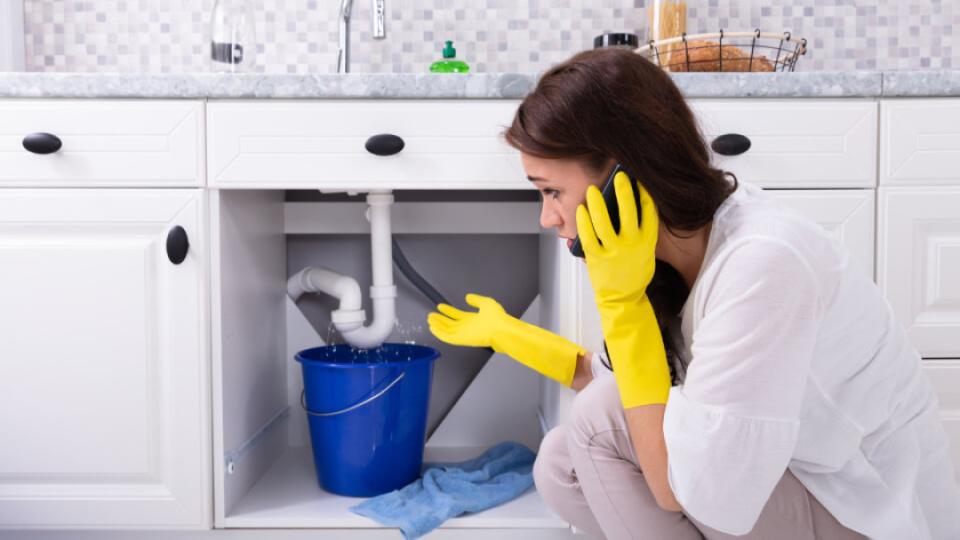Plumbing emergencies can strike fear into the heart of anyone. However, with the right knowledge and preparation, you can navigate these unexpected incidents smoothly.
Dealing with Plumbing Emergencies: Quick Action is Key
Plumbing emergencies can take many forms, from burst pipes and overflowing toilets to stubborn clogs and leaks. The immediate response you take can make a significant difference in preventing further damage and reducing repair costs. It is important to note that some plumbing problems are DIY and some require the help of a professional. Here’s what you should do when faced with a plumbing emergency:
- Shut Off the Water Supply: Locate your main water shut-off valve and turn it off immediately to stop any water flow. This will help minimize potential water damage.
- Assess the Situation: Evaluate the severity of the problem. If the issue seems minor and you have the necessary tools and skills, you can attempt a DIY fix. However, for more complex or serious problems, it's advisable to contact a professional plumber.
- Contact a reliable plumber: In case of major plumbing emergencies, reaching out to an experienced licensed plumber should be your next step. Ensure you have the contact details of a reputable emergency plumber readily available. They will have the skills and equipment to handle the situation swiftly and effectively.
- Document the Incident: Take photos or videos of the affected areas and any visible damages. This documentation can be useful when filing insurance claims or communicating with your plumber.
Preventing Plumbing Emergencies: Smart Strategies for Homeowners
While emergencies are unpredictable, taking preventive measures can reduce the likelihood of facing a plumbing crisis. Here are some effective strategies to safeguard your plumbing system:
- Regular Inspections: Schedule routine inspections with a professional plumber to detect potential issues before they become emergencies. They can identify signs of wear and tear, leaks, or clogs that could lead to more significant problems if left unattended.
- Proper Disposal: Avoid flushing anything other than toilet paper down the toilet. Items like wet wipes, dental floss, and feminine hygiene products can cause clogs and damage to your plumbing system.
- Be Mindful of Grease and Food Waste: Dispose of cooking grease in a separate container and throw it in the trash. Additionally, avoid pouring food waste, coffee grounds, or oil down the kitchen sink, as they to clogs in your drains.
- Install Drain Covers: Use drain covers or strainers in your sinks, showers, and tubs to catch hair, food particles, and debris. This simple step can prevent clogs and costly repairs.
- Maintain Water Pressure: High water pressure can put stress on your plumbing system, increasing the risk of leaks and burst pipes. Install a pressure regulator to ensure the water pressure remains within safe limits.
- Insulate Exposed Pipes: During colder months, insulate exposed pipes to prevent them from freezing and potentially bursting. This can save you from the hassle and expense of dealing with a burst pipe emergency.
- Know the Location of Shut-off Valves: Familiarize yourself with the location of shut-off valves for individual fixtures and appliances, as well as the main water shut-off valve. This knowledge will help you take quick action in case of a plumbing emergency.
- Keep Gutters and Drains Clear: Regularly clean your gutters and drains to prevent water backup. Clogged gutters can lead to water overflowing onto your roof or foundation, causing damage to both your plumbing and structure.
- Educate Household Members: Teach everyone in your household about proper plumbing usage and the importance of taking preventive measures. Simple habits, like turning off faucets tightly and not overloading toilets, can go a long way in preventing emergencies.
- Regular Maintenance: Consider scheduling with a professional plumber. They can perform tasks like flushing your water heater, inspecting connections, and checking for leaks, ensuring your plumbing system remains in tip-top shape.
Plumbing emergencies are often unexpected and can cause significant damage if not handled promptly. By acting swiftly and calmly during a plumbing crisis, you can minimize the impact and protect your property. Additionally, implementing preventive measures can greatly reduce the risk of encountering emergencies in the first place.
Remember to shut off the water supply, assess the situation, and contact a reliable plumber when faced with a plumbing emergency. To prevent emergencies, schedule regular inspections, dispose of waste properly, and maintain reasonable water pressure. By educating yourself and practicing proactive plumbing maintenance, you can ensure a smoothly functioning plumbing system and enjoy peace of mind in your home.
If you ever find yourself in a plumbing emergency, don't hesitate to reach out to a TrustDALE certified plumber. They have the expertise and equipment to handle any situation, allowing you to quickly resolve the issue and get back to normal. Taking the necessary steps to prevent emergencies and being prepared for them will help you navigate through any plumbing challenges you may face. Remember, you're always protected by Dale's trademark $10,000 Make It Right Guarantee™.

